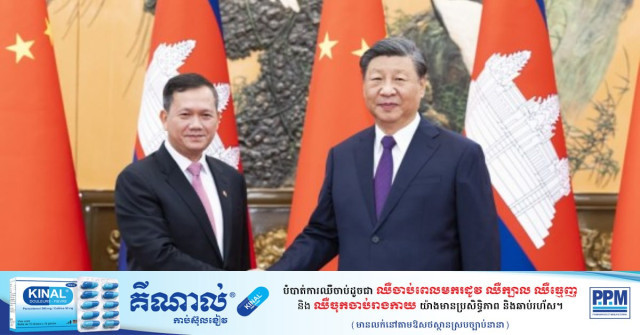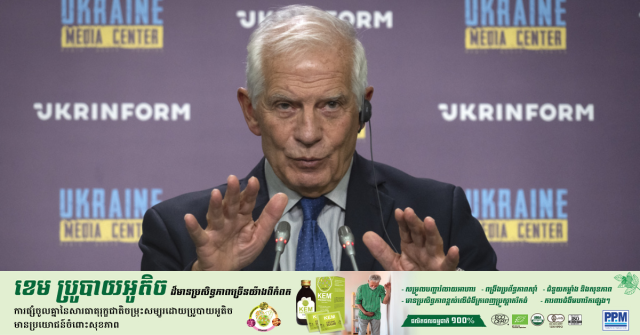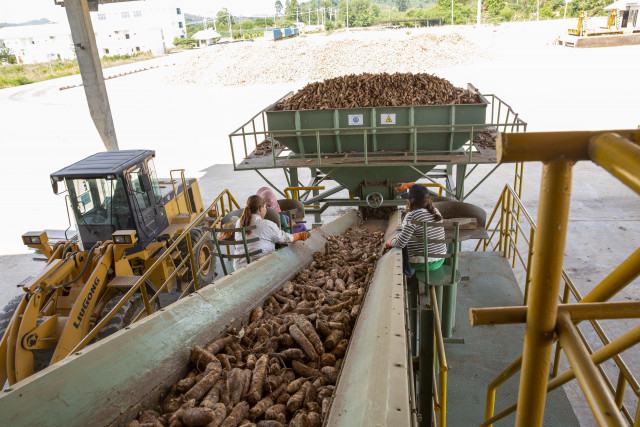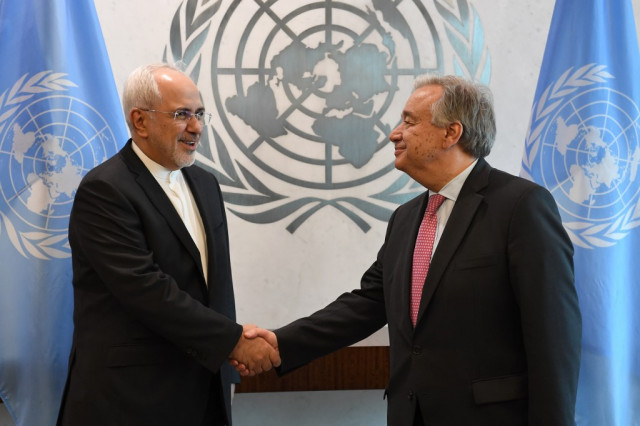Cambodia Embraces Trembling Giant China

- By Phoung Vantha
- September 21, 2023 10:30 AM
PHNOM PENH – Cambodia and China pledged to map out the next stage of their strategic partnership when Prime Minister Hun Manet visited Beijing this month.
The trip aimed to deepen and consolidate ties and open new paths for cooperation and growth for Cambodia.
However, it came at a difficult time for Chinese leaders. Their economy is performing poorly. There are huge problems in the crucial property market.
Foreign investment has fallen. Authorities stopped publishing youth unemployment figures after they hit a record high.
Strict COVID lockdowns angered millions and the demographic crisis caused by the former one-child policy is getting closer.
They know that the relationship between the party and the people is in danger. The party realises that if it cannot keep delivering prosperity then public trust will disappear, with the alarming prospect of unrest.
In the light of these difficulties, Cambodianess asked analysts if it was wise to lock Cambodia into such a tight relationship with China.
Did emerging powers such as Indonesia and India not offer a safer future than China under a Communist Party which fears for its own stability? we asked.
Also, Chinese strategy is promoting reform of the international order for its own benefit and that it does not feel bound by the existing rules-based order. Cambodia, as a small nation, supports the rules-based order. How can Cambodia protect its interests?”
And does Cambodia embracing China mean it is moving away from the hedging strategy between China and the West?
Sophal Ear, Associate Professo at the Thunderbird School of Global Management at Arizona State University in the US, said that Cambodia should diversify and stop putting all its eggs in China's basket.
“When China sneezes, Cambodia will catch a cold,” he said.
“The tight relationship is financial but also political. It aligns with regime survival. However, the risks are manifold: the Chinese model is seeing its greatest challenge yet.
“All the political guardrails were removed by Xi, and so we are back to a Maoist-style forever-rule. Performance legitimacy means: if you don't perform, then what? Will you leave peacefully?
He said powers such as Indonesia and India, along with democracies in Asia and the West, might offer a safer future than China under a Communist Party which fears for its own stability.
“When your sugar-daddy runs out of money, what will Cambodia do next?”
In terms of a rules-based world order, Cambodia can protect its interests by practicing what it preaches instead of backing China at every opportunity, he said.
However, he said the hedging strategy had not been around in years if not decades. “Cambodia may say it wants to be friend to all, but it doesn't practice that.”
Sokvy Rim, co-founder and program manager of The Thinker Cambodia, said the new government might not depend on China as previously but it still maintains the relationship for the economic benefit.
Cambodia would diversify its relations with India, Indonesia, Japan, Singapore, the West and other countries as the new government seemed focused on strengthening the economy.
Rim said that on Manet’s recent visit to China, most of the talks were focused on economics rather than political relations. When the PM met US and West representatives and at the recent Asian summit, he raised mostly economic issues.
Charadine Pich, deputy executive director of the Cambodian Institute for Cooperation and Peace, and Future Forum researcher Chhengpor Aun wrote of Cambodia’s position amid intensifying US-China rivalry in an article for the US Institute of Peace.
“On the one hand, China’s receptiveness to Cambodia’s desire for political stability and economic development could enhance the domestic political standing of the regime in Phnom Penh and its strategic autonomy,” they wrote.
“On the other, Cambodia needs the United States and its allies for export destinations and to counterbalance against an over-reliance on any particular country, including China.
“As a small state, Cambodia has less room to maneuver amid today’s unprecedented geopolitical competition and dynamic regional order.
“Still, the principles of non-interference, permanent neutrality, non-alignment, peaceful coexistence with neighbors, territorial integrity and national sovereignty, as enshrined in Article 53 of Cambodian Constitution, continue to serve as a roadmap for Cambodia’s foreign policy direction.”
They wrote that Cambodia’s economy became less dependent on China during the pandemic.
“China’s share in Cambodia’s public debt decreased from 47.48% at the end of 2019 to 40.13% at the end of 2022 and 38.72% by the end of the first quarter of 2023.
“Besides large-scale infrastructure investments, there have been fewer economic engagements between Beijing and Phnom Penh due to the absence of Chinese tourism as a result of Beijing’s extensive zero-COVID policy and subsequent chaotic struggle to exit from that policy and make a post-pandemic recovery.”
On Sept. 19, PM Manet told workers in Takeo province that his trip was to confirm the position of the new Governmentof Cambodia, based on independence, sovereignty and laws.
“Is it wrong for Cambodians to make more friends internationally?” he asked. “We should be happy that we make more and more friends.
If it was bad to trade with China, why did the US and Europe need to do it?
“Our country is small, we must expand our relations with the international community,” he said, assuring his compatriots that respecting each other’s sovereignty and interests on an equal footing is a must when he negotiates with the international community.















